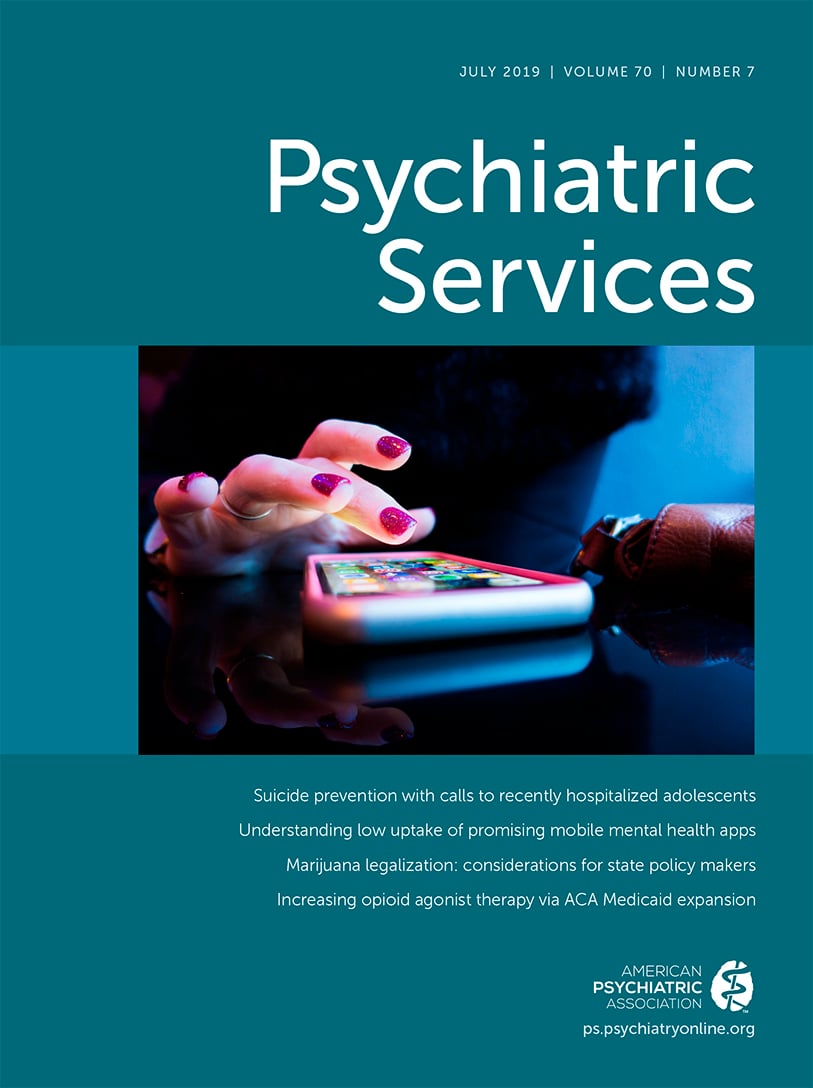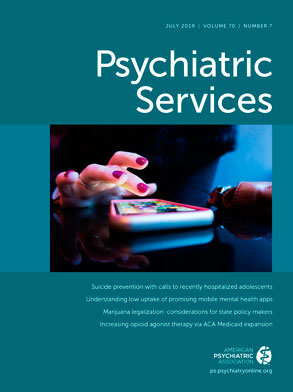TO THE EDITOR: Since 2008, suicide has ranked as the 10th leading cause of death in the United States (
1). The Centers for Disease Control and Prevention reported that nearly 45,000 U.S. citizens died by suicide in 2016, and suicide rates have increased by over 30% in half of the states since 1999 (
1). The growing epidemic of suicide poses many challenges for suicide prevention efforts.
Social workers are instrumental in suicide prevention in that they comprise one of the largest occupational groups of behavioral health practitioners in the United States (
2). Most social workers will encounter at least one suicidal client in their career. A national survey of 598 social workers found that 92.8% of respondents had reported working with at least one suicidal client, and 78.1% had worked with at least one suicidal client in the past year (
3).
Social work research in the area of suicide prevention is limited. A systematic review on social work research literature found that “social work research articles made up only 0.2 per cent of the total articles published from 1980–2006 in social work journals” (
4). Furthermore, less than 8% of these articles discussed effective evidence-based practice interventions that could be used with suicidal clients (
4).
A review of the literature identified several areas in which social work as a profession could improve in suicide prevention. First, master’s-level social work education programs need to modify their curricula toward educating about suicide prevention. The Social Work Education in Suicide Survey of 598 social workers found that 79% of respondents reported that they did not receive formal training on suicide in their master of social work (MSW) program, and 41% of respondents indicated that they did not take any classes that addressed suicide intervention or prevention (
3). Moreover, a randomized intervention study of the Question, Persuade, and Refer suicide prevention gatekeeper training of 73 advanced-standing and second-year MSW students found that students scored an average of 5.64 out of a maximum score of 25 on their knowledge of suicide risk factors (
5).
In addition to modifying MSW education programs, prevention efforts should be focused on gatekeeper training programs. Gatekeepers are individuals within the community, such as social workers and teachers, who are trained to identify suicide risk factors. Prevention efforts should be directed toward training social workers to be effective gatekeepers, as well as having social workers educate the general public on suicide risk factors.
Another area that could be further explored is postvention, or an intervention to support persons bereaved by suicide. Those bereaved by suicide have an elevated risk of suicide, and postvention could decrease suicidal behavior of these individuals. Maple et al. reported that social work researchers have published only three articles on postvention since 2003 (
6).
Future social work research on suicide prevention should expand on evidence-based practices in regard to screening and psychotherapeutic interventions.

